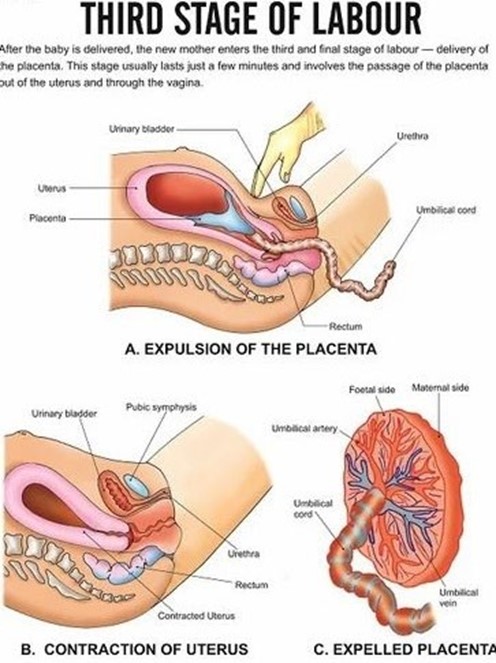An adolescent patient at 20 weeks gestation states that it is important not to have a baby that weighs too much. She states this has been her rationale for limiting calories. Her weight has decreased from 110 pounds to 106 pounds.
What would be the best nursing response? Select one:
"It's okay to want a small baby when you're a teen."
"You shouldn't be worrying about your figure."
"Your baby needs adequate nutrition to develop and to be healthy."
"You are causing harm to your baby."
The Correct Answer is C
Choice A Reason: "It's okay to want a small baby when you're a teen." This is an incorrect answer that validates the patient's misconception and reinforces her unhealthy behavior. It also implies that there is something wrong with having a normal-sized baby or being a teen mother.
Choice B Reason: "You shouldn't be worrying about your figure." This is an incorrect answer that dismisses the patient's feelings and concerns and may make her defensive or resistant to change. It also does not address the underlying issues or provide any guidance or support.
Choice C Reason: ""Your baby needs adequate nutrition to develop and to be healthy." This is because this response provides factual information and education to the patient about the importance of nutrition during pregnancy. It also conveys empathy and concern for both the mother and the baby without being judgmental or accusatory.
Choice D Reason: "You are causing harm to your baby." This is an incorrect answer that blames and criticizes the patient and may make her feel guilty or ashamed. It also does not offer any help or solutions for her situation.
Nursing Test Bank
Naxlex Comprehensive Predictor Exams
Related Questions
Correct Answer is D
Explanation
Choice A Reason: Taking the newborn to the nursery for the initial assessment. This is an ineffective intervention that disrupts parental atachment by separating the mother and the newborn. It also deprives the newborn of the benefits of skin to skin contact and breastfeeding.
Choice B Reason: Allowing the mother a chance to rest without the baby immediately after delivery. This is an unnecessary intervention that delays parental atachment by postponing the first contact between the mother and the newborn. It also ignores the mother's desire and readiness to hold and feed her baby.
Choice C Reason: Placing the newborn under a radiant warmer to do the initial assessment. This is an outdated intervention that hinders parental atachment by creating a physical barrier between the mother and the newborn. It also exposes the newborn to potential risks such as dehydration, hyperthermia, or eye damage.
Choice D Reason: Placing the newborn on the maternal abdomen and doing the initial assessment. This is because this intervention facilitates skin to skin contact, eye contact, and bonding between the mother and the newborn. It also enhances breastfeeding initiation, thermoregulation, and maternal-infant atachment.
Correct Answer is A
Explanation
Choice A Reason: Assisting with the delivery of the placenta and ensuring that the fundus is contracted afterward. This is an appropriate action for the nurse to perform during the third stage of labor, as it helps complete the process of labor and prevent complications.
Choice B Reason: Palpating the woman's fundus for position and firmness. This is an action that is done after the delivery of the placenta, not during. It is important to monitor the fundal height, location, and consistency to assess uterine involution and bleeding.
Choice C Reason: Encouraging the woman to push with her contractions. This is an action that is done during the second stage of labor, not the third. The second stage of labor is the period from full cervical dilation to the birth of the baby. The nurse's role is to support and coach the woman to push effectively with her contractions.
Choice D Reason: Alleviating perineal discomfort with the application of ice packs. This is an action that is done after the delivery of the placenta, not during. It is a comfort measure that can reduce swelling, pain, and inflammation in the perineal area.

Whether you are a student looking to ace your exams or a practicing nurse seeking to enhance your expertise , our nursing education contents will empower you with the confidence and competence to make a difference in the lives of patients and become a respected leader in the healthcare field.
Visit Naxlex, invest in your future and unlock endless possibilities with our unparalleled nursing education contents today
Report Wrong Answer on the Current Question
Do you disagree with the answer? If yes, what is your expected answer? Explain.
Kindly be descriptive with the issue you are facing.
